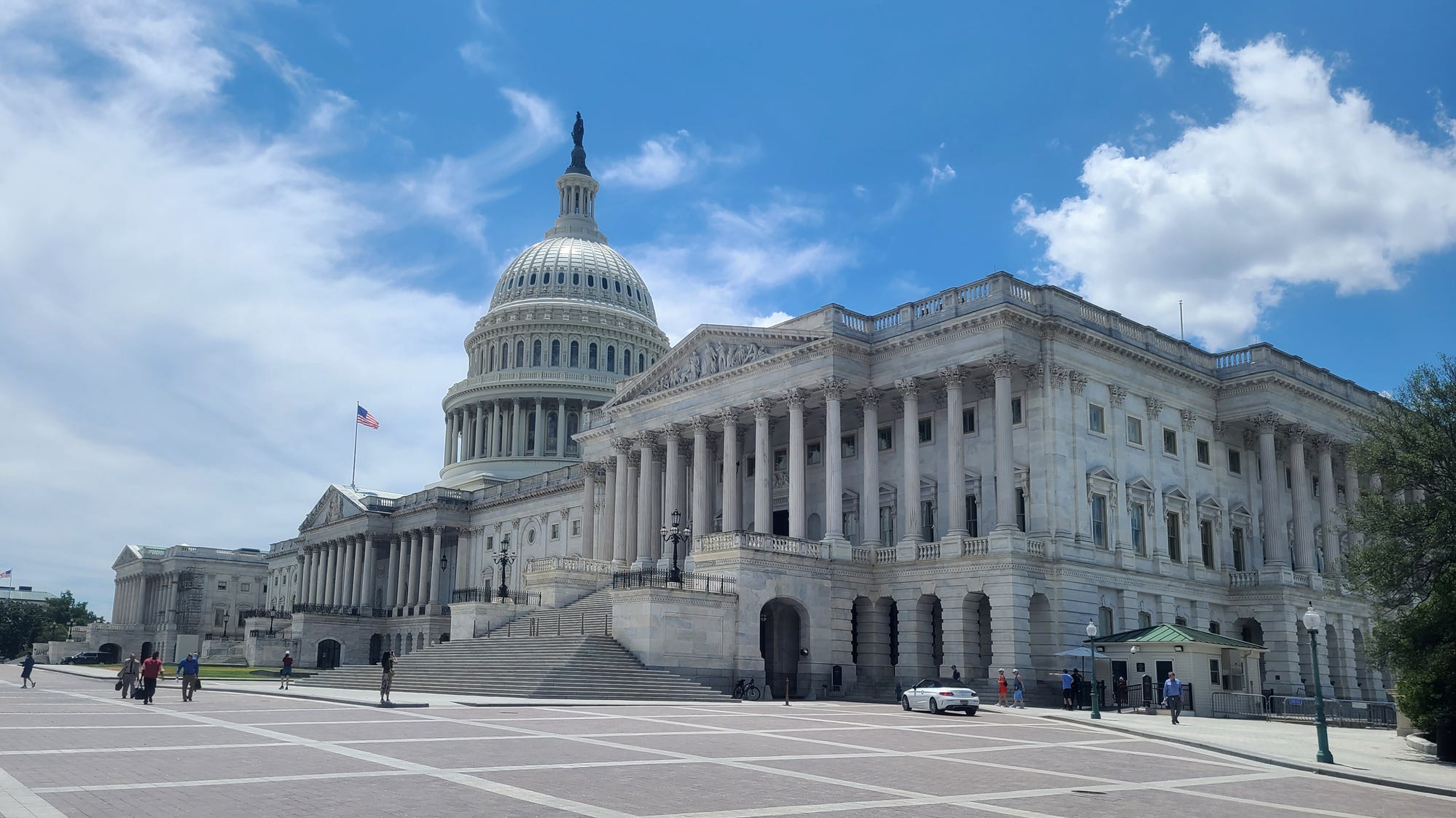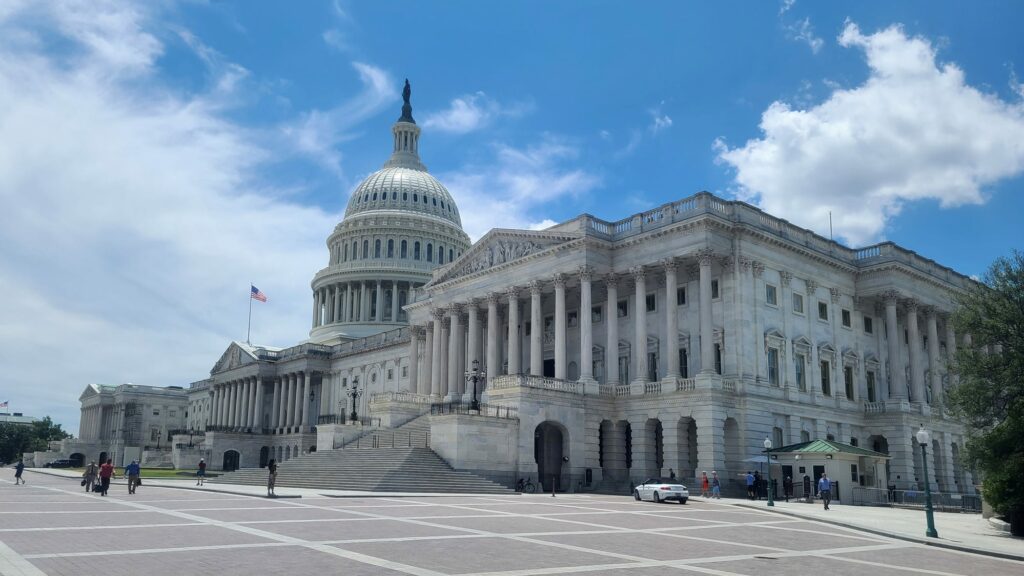
Who is running in Arizona’s nine congressional district races?
Arizona has nine seats in the U.S. House of Representatives up for grabs in the 2024 election. Here’s what voters need to know for November elections.
With Arizona’s primary elections in the rearview mirror, the fight over the state’s representation in the U.S. House is now playing out in two key swing districts.
In the Scottsdale-area 1st Congressional District, long-serving Republican U.S. Rep. David Schweikert is fending off a challenge from Democratic former state Rep. Amish Shah.
And in Arizona’s 6th Congressional District, which includes much of Tucson, freshman U.S. Rep. Juan Ciscomani is facing a rematch against former state Sen. Kirsten Engel, a Democrat who he narrowly defeated in 2022.
The races are among just a handful that will determine which party controls the U.S. House starting in 2025. That means some of the country’s biggest political spenders are working to tilt the election in their preferred candidate’s favor.
Here are 5 things to know about who’s bankrolling Arizona’s two most competitive congressional races.
Both parties’ majority-makers spend big
The lion’s share of money in the races comes from the Republican and Democratic groups that are focused on winning a majority in the U.S. House.
That includes groups operated by party leadership, which budget the parties’ fundraising across toss-up races around the country, as well as committees run by influential members of Congress that help their fellow partisans get elected.
Combined, their spending will reach into the multi-millions between now and November.
On the GOP side, some of the biggest spenders so far are the majority-seeking Congressional Leadership Fund and fundraising committees led by leaders like Kevin McCarthy, Steve Scalise and Tom Emmer. Among the top Democratic spenders are the Democratic Congressional Campaign Committee, House Victory Project 2024 and Take Back the House 2024.
Wielding coveted campaign cash, the national party apparatus can play an outsize role in operating a swing-district campaign, shaping a candidate’s messaging, connecting them with resources, and providing political expertise.
GOP incumbents boosted by business
The two GOP incumbents, Schweikert and Ciscomani, have been boosted by spending from business groups.
That’s no surprise: Both are free-market Republicans who generally favor an economic environment of low regulation and low taxation.
So far this year, Schweikert and Ciscomani have each benefitted from around $200,000 in outside spending from Americans for Prosperity Action, the political-giving wing at the center of the advocacy network led by billionaire industrialists Charles and David Koch.
The political arm of the Club for Growth, another free market group, has spent around $100,000 in support of Schweikert, too.
That spending took place through “independent expenditures” that aren’t allowed to officially coordinate with the campaigns.
Schweikert and Ciscomani have accepted money from a long list of corporate and industry donors who give directly to their fundraising committees.
According to OpenSecrets, a non-partisan group that tracks money in politics, the securities and investment, real estate, insurance, and oil and gas are among the top industries giving to both Schweikert and Ciscomani. Pro-Israel groups and individuals also are among their biggest sources of funding, per OpenSecrets.
Ciscomani has been boosted by TV ads by the American Bankers Association, the trade association for the U.S. banking industry. The ABA ran an ad thanking Ciscomani for opposing a rule that would require banks to report small businesses’ credit application data to federal regulators, and for supporting another bill that would make a business income tax deduction permanent.
Their Democratic challengers, Shah and Engel, have made commitments not to accept money from corporate PACs. Those pledges may dilute corporate influence in their campaigns, though the candidates can still accept donations from corporate CEOs in their individual capacity, and they can transfer large sums of money from colleagues and party committees who have made no such pledges.
Medical associations, Indian-American group backing Shah
Shah was the only one of the four candidates who faced a difficult primary contest. He won a crowded six-way race in the July 30 election.
Shah’s fundraising is expected to pick up now that his primary is behind him. Much of that information won’t be made public until mid-October, when the next round of campaign finance reports are released.
His primary victory was boosted by around $200,000 in outside spending from The Impact Fund, a group that helps elect Indian-Americans to Congress. The group also spent in support of Suhas Subramanyam, a candidate in Virginia, and Susheela Jayapal of Oregon, sister of the progressive Rep. Pramila Jayapal.
Several large Impact Fund donors also gave directly to Shah’s official campaign committee. They include Hemant Goradia of Texas, a CEO who gave $100,000 to the Impact Fund and works in the chemical and plastics industry; Narendra Mulani of Connecticut, an AI and tech entrepreneur who gave roughly $50,000; and Ruchir Sehra of Scottsdale, a medical tech entrepreneur who gave $25,000.
Since he became the Democratic nominee, Shah has benefitted from around $130,000 in outside spending from the League of Conservation Voters’ Victory Fund, the climate and environment-focused group that generally helps elect Democrats. One of their biggest single donors is the billionaire and former New York City mayor Michael Bloomberg. Like AFP Action, the League of Conservation Voters is one of the top spenders of “dark money” whose contributors are unknown, according to OpenSecrets.
Shah, a former state lawmaker and emergency room doctor, has received around $60,000 worth in donations from medical associations.
He’s also spent a fair amount of his own money. Shah has donated $31,000 and loaned $163,000 to his campaign.
Labor, liberal advocates give to Kirsten Engel
Engel, an environmental lawyer and former state lawmaker, has received money from labor unions and other issue-specific liberal advocacy groups.
Like Shah, she’s been boosted by the League of Conservation Voters’ Victory Fund to the tune of $400,000.
At least a dozen labor unions have given to her campaign, too. Among them are the National Education Association, which represents public school teachers and personnel, the United Food and Commercial Workers, and SMART, the union that represents transportation workers and other allied professions. The labor and organizing group Worker Power has supported both Shah and Engel with around $15,000 in outside spending each.
Engel has taken money from liberal groups that focus on representation in Congress. Moms Fed Up, which helps elect Democratic mothers, EMILY’s List, which backs female candidates who support abortion rights, and the group Elect Democratic Women have all given to her campaign.
Big checks dominate on both sides
Overall, small-dollar donations make up a relatively small fraction of the money in these competitive races.
For all of the candidates, donations of up to $200 made up less than one-fifth of their individual contributions.
Several Arizonans made large donations to the candidates’ joint fundraising committees. The benefit of those committees is that donors can write one large check at once, but the money is ultimately distributed across multiple campaigns or organizations to stay in compliance with campaign finance limits.
Engel’s joint fundraising committee has taken $10,000 each from Pamela Werth and Marion Carolyn Weber, longtime Democratic donors based in Arizona who described their professions as retired or not employed. It has taken $10,000 from the United Food and Commercial Workers union.
Ciscomani’s joint fundraising committee has taken large sums from a number of Tucson-area donors. The biggest ones are Jim and Vicki Click, in the auto industry; real estate mogul Humberto Lopez; Bruce Halle Jr., heir to the Discount Tire fortune, and his wife Nikki, a realtor and entrepreneur; and Michael Bidwill, owner of the Arizona Cardinals. Each gave $25,000.
Source link : http://www.bing.com/news/apiclick.aspx?ref=FexRss&aid=&tid=66e2e3809a9642728519b1fe41c4d4ab&url=https%3A%2F%2Fwww.azcentral.com%2Fstory%2Fnews%2Fpolitics%2Felections%2F2024%2F09%2F12%2Fwhos-bankrolling-arizonas-competitive-house-races-5-things-to-know%2F75163775007%2F&c=3075009548084293479&mkt=en-us
Author :
Publish date : 2024-09-12 01:02:00
Copyright for syndicated content belongs to the linked Source.
